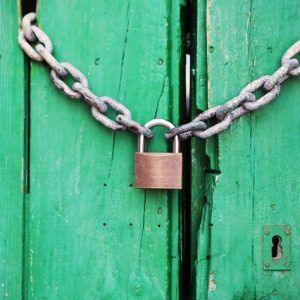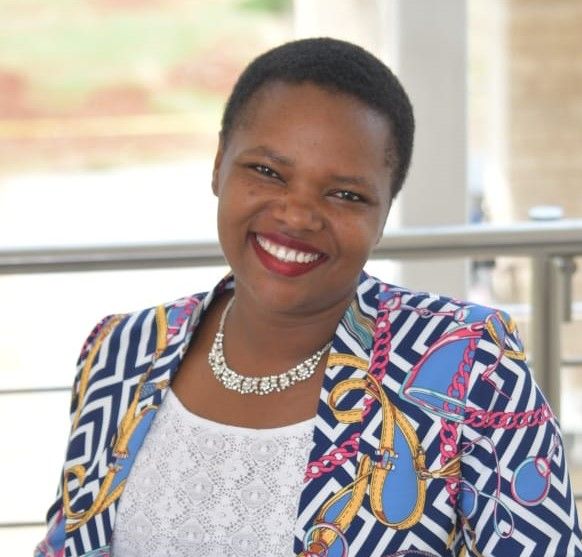“Richer, let me tell you”, Mama poses as if she is putting her thoughts together. She gives me a look that says, You must listen! I demand full attention! I think she is just like her mother– my grandmother, very authoritative! For the last year that we've been together, I can tell when a story is optional, or when it is a must-listen. This time it is the latter, and so I pay her the deserved attention.
“You were born at the peak of Covid-19 in Kenya, a time of uncertainty and anxiety, a time when all schools were closed." She pauses and looks at me, unrushed, maybe to ensure that I am listening, or to let her words sink in. "Children had to stay home for more than seven months”, Mama continues.
“You know, in the last decade, educational institutions in Kenya have continued to face many challenges ranging from bureaucratic policy, budgetary concerns, student and teacher unrest, terrorism, fires, exam malpractices, poverty; and since 2020, the coronavirus. These challenges and many more that are yet to come require school principals and leaders to be adaptive, innovative, and creative.”
“Son, let me give you a few examples of the education crisis in Kenya”. She then calls my name, lovingly, as if checking that I am still paying attention. I am.
“In July 2015, following persistent students unrest, the then minister of Education professor Jacob Kaimenyi banned schools’ mock examinations. He argued that these exams put learners under unnecessary pressure, leading to increased student unrest. This directive attracted criticism from most stakeholders in the education sector, with some requiring him to step down. Similarly, the teachers went on strike in the same year, demanding that the government increases its remuneration.
To address this urgent crisis, the Ministry of Education closed all public schools offering the 8-4-4 curriculum, arguing that no learning was taking place and schools needed to be closed to safeguard the learners and school property. This, again, attracted criticism from parents who felt like their children's right to education was being infringed.
The university, my son, has not been left behind. When I was in the university, I remember students expressing dissatisfaction and the university management deciding to close the school at 4:00 P.M. All students were ordered to leave the university premises. The school management did not care if one had enough fare to get home or if and how they would even get home.”
My Mama is emotional as she shares these truths. She says she was lucky that a friend of hers accommodated her in Nairobi that evening. She would have otherwise slept out on the streets. And as she continues to give more examples of past education crises and how they have been handled, the issue of teachers' strikes and the closure of schools catch my attention. I wonder why they closed schools, and denied students their right to education. Could they not have found a lasting solution between the teachers and the employer; the system and the students. But what does a one-year-old know?
“Covid-19 has been the worst crisis, son, in the education sector”. Mama says this so faintly that I wonder what is going through her mind. I am tired, but I have to listen. Why does she tell me all these stories? Could it be therapeutic for her? Mmmh…
“In March 2020, the President of Kenya closed all the learning institutions. This pronouncement caused anxiety and attracted mixed reactions from various stakeholders. There is documentation of how schools in Kenya, depending on the leadership provided, moved their learning online, while others did nothing and students missed classes for over eight months. President Kenyatta's, ratings both domestically and internationally, soared to unprecedented levels, but this did not last long. Four months in, Kenyans had already gotten tired of having their children at home.
These and many other examples of crises in the education sector have something in common: Leadership. We need to re-examine the preparation of today’s school leaders and consider including adaptive frameworks that consider more than just how school principals might navigate extreme crises. I think a course on leadership crisis should be mandatory for all students in colleges and universities.
But honey, the most shocking and detrimental education crisis is: having learners in school without any learning going on. A study done by the UNESCO Institute for Statistics indicates that 600 million school-age children do not have basic skills in maths and reading. This has a knock-on effect on their whole education, impacting their ability to learn, earn, and flourish in life.
In Kenya, the situation is even more dire, with reports indicating that learners lose at least three years of learning due to suspension of learning or poor quality education. In addition, when schools are closed, learners are exposed to a number of traps including exposure to drugs, teenage pregnancy, and gender-based violence. To give you an example, in three months of lock-down due to COVID-19, 152,000 Kenyan teenage girls became pregnant.
School managers, therefore, have a big role to play in ensuring learners remain in school and that learning is happening.





